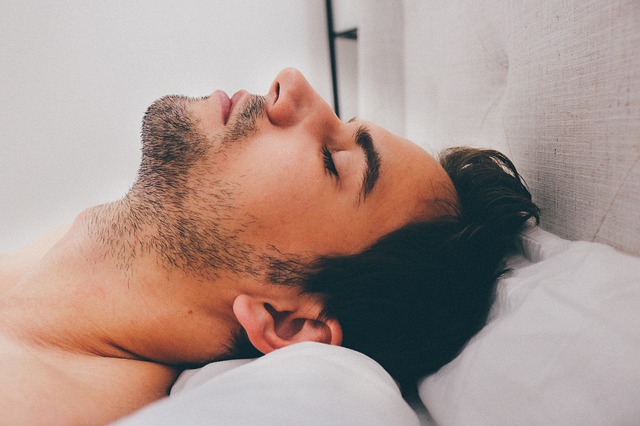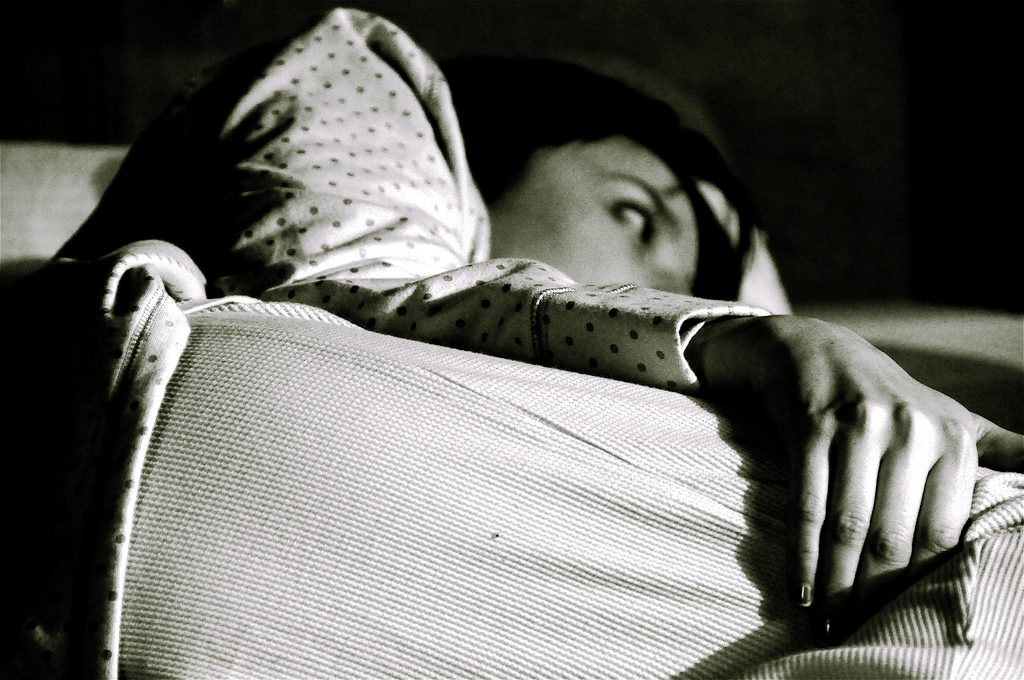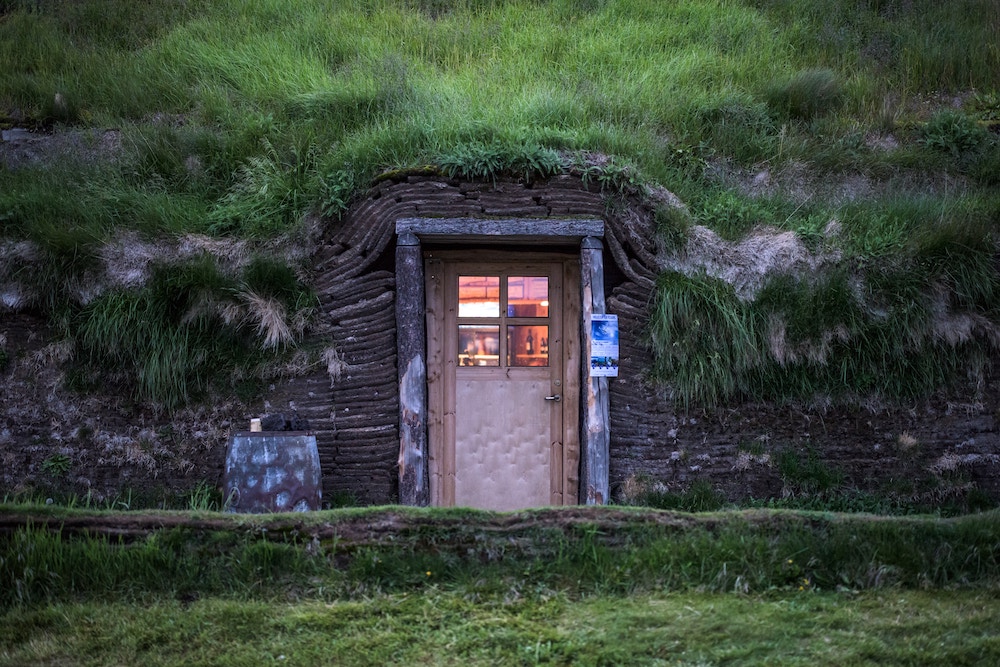
“Sleep is related to mental health difficulties”.
As if we didn’t know that already, a significant number of tweets confirmed it when this open access article was unleashed into the world (Freeman et al, 2017). The headline of this Guardian article was somewhat misleading, but isn’t it true that we all know that poor sleep can produce difficulties in our mental health?
Well, it has generally been seen to be the other way around. If you’re suffering from a mental health issue you are more likely to struggle sleeping, but not necessarily vice versa. However, research to support the role of sleep as a causal agent in psychopathology and psychosis is rapidly accumulating (Davies et al, 2017; Reeve et al, 2015).
Recent studies have provided convincing evidence for the role of sleep loss in exacerbating psychosis. Last month, Sarah Reeve and colleagues in Oxford found that sleep deprivation of around 4 hours each day for 3 days produced an increase in paranoia and hallucinatory experiences in a university student sample. The effect of sleep deprivation on paranoia was small, but large for hallucinations.
However, despite the increasing number of studies trying to address causal ordering, there have been no sufficiently powered trials that explore whether this finding might have clinical relevance. For example, if sleep loss could produce psychotic-like experiences then could intervening and treating sleep also reduce them? This would have clear implications and reinforce the need to pay more attention to sleep disturbances in the context of psychosis. Given that insomnia is something society has been grappling with long before the trials of modern life, it is vital to understand whether this could be a feasible treatment target.
Fortunately, Freeman and colleagues have conducted one of the largest randomised controlled trials ever in mental health (the OASIS trial), to assess whether a previously validated sleep intervention (CBT for insomnia; CBTi) could improve psychosis symptoms and a wide range of common psychopathologies (e.g. depression, anxiety and nightmares).

Is this the largest ever randomised controlled trial of a psychological intervention for a mental health problem? (n=3,755)
Methods
This study employed few exclusion criteria but required participants to:
- Be attending university
- Have a positive screen for probable insomnia (using the sleep condition indicator, scores of 16 or lower)
- Be 18 years or older.
Their large single-blind randomised controlled trial recruited from 26 universities across the UK, which explains their impressive author list. All participants were randomised to either the sleep intervention (Sleepio) or care as usual. The Sleepio intervention is an online CBT for insomnia program, split into 6 sessions of around 20 minutes each, which unlocked progressively once a week (e.g. 6 weeks of intervention). Treatment as usual involved no intervention from the experimenters.
The primary outcomes of the trial were:
- Insomnia
- Paranoia
- Hallucinations
These were assessed as baseline, 3 weeks (during the intervention), 10 weeks (end of the intervention) and 22 weeks (follow-up).
Mediation models (as everyone loves a good mediation analysis currently) were also run; assessing to what extent changes in sleep could explain the changes in paranoia and hallucination experiences at the end of the intervention period and at follow-up.
Results
The sleep intervention was associated with a large and significant improvement in sleep compared to treatment as usual:
Primary outcomes
- A small significant improvement in paranoia at all time points, with larger effects post-treatment (10 and 22 weeks)
- A large significant improvement in insomnia at all time points, with larger effects post-treatment (10 and 22 weeks).
Secondary outcomes
- A significant improvement in nightmares, prodromal psychosis, depression, anxiety, functioning and wellbeing, with a similar effect size at 10 and 22 weeks
- A significant reduction in the number of participants meeting cut-off for ultra-high risk for psychosis, depressive disorder, and anxiety disorder
- However, no difference in the number of participants contacting mental health services, receiving a mental health diagnosis, taking psychiatric medication or receiving psychological therapy between treatment and control at 10 or 22 weeks assessment.
Statistical mediation analysis
The authors carried out mediation analyses to find out whether the changes in paranoia and hallucinations could be explained by improvements in sleep. They found that changes in sleep at week 10 explained:
- 57.8% of the difference in paranoia scores between the treatment and control at the end of the treatment period (week 10)
- 38.6% of the difference in hallucination scores between treatment and control at the end of the treatment period (week 10).

This trial clearly shows that treatment of insomnia in students leads to a reduction in psychotic experiences.
Conclusions
The conclusions from this study are straightforward but powerful: improving sleep seems to also reduce paranoia, hallucinations and other measures of psychopathology.
This research highlights an additional pathway through which healthcare can help those at-risk for psychopathology, which is very much in line with a growing movement to focus on sleep. We can’t continue to ignore the important relationship between sleep and our mental health.
Strengths and limitations
The obvious advantage of this trial is its sample size which at initial randomisation was an impressive 3,755 participants (1,891 in the intervention group). The authors claim it is the largest RCT ever conducted on a psychological intervention in mental health and I can’t find any evidence to the contrary. Importantly, the effects between sleep and psychosis tend to be small and this sample meant that it was sufficiently powered to pick up these subtle changes.
One potential limitation of this trial is that the effect for hallucinations and paranoia were small. However, this seems like a minor point given that this trial showed, convincingly, the positive impact of treating sleep in a large sample of individuals at an age when mental illness tends to emerge. This is a broad trial which tried to assess whether treating sleep could influence psychosis symptoms primarily. It succeeded in that but the results raise plenty of interesting questions. For example, what aspects of the intervention were most effective for reducing psychosis symptoms and might altering the intervention for a younger sample improve retention? This is important because, as the authors state, those who completed more sessions showed greater improvements in psychosis symptoms.

We can’t continue to ignore the important relationship between sleep and our mental health.
Implications for practice
- This therapy can be delivered completely online and in the privacy of an individual’s home, which makes it flexible and cheap to implement
- Treatment of sleep problems may not immediately ameliorate psychosis symptoms but it may increase adherence to other treatments for those in mental health services
- Sleep difficulties in at-risk populations (e.g. ultra-high-risk for psychosis) should be considered as an additional pathway to consider in treatment. Moreover, given the reduced stigma associated with insomnia compared to psychosis, it might provide a useful pathway to engage at-risk individuals with treatment
- An online, and automated, sleep intervention can improve sleep disturbances with a large effect size. This is not a new finding, but this much larger trial reinforces the efficacy of this web-based intervention.
Finally
Personally, as someone with a long-term health condition, I am always aware that a change in sleeping patterns can produce a flare-up of symptoms. To me, sleep difficulties have never just been secondary to disease activity and this should be apparent for mental health too – it is a two-way street. Ultimately, it surprises me that, despite scientific reports between psychosis and sleep appearing as early as 1962, it’s taken this long for the much-needed trial to have been conducted. Here’s hoping that these fascinating results will be the start of a change in attitudes towards the importance of treating sleep for mental (and physical) health.

Will these results open the door to more high quality research exploring the links between sleep and mental health?
Links
Primary paper
Freeman D, Sheaves B, Goodwin GM, Yu LM, Nickless A, Harrison PJ, Emsley R, Luik AI, Foster RG, Wadekar V, Hinds C, Gumley A, Jones R, Lightman S, Jones S, Bentall R, Kinderman P, Rowse G, Brugha T, Blagrove M, Gregory AM, Fleming L, Walklet E, Glazebrook C, Davies EB, Hollis C, Haddock G, John B, Coulson M, Fowler D, Pugh K, Cape J, Moseley P, Brown G, Hughes C, Obonsawin M, Coker S, Watkins E, Schwannauer M, MacMahon K, Siriwardena AN, Espie CA. (2017) The effects of improving sleep on mental health (OASIS): a randomised controlled trial with mediation analysis. The Lancet Psychiatry Published: 06 September 2017 Open Access DOI: http://dx.doi.org/10.1016/S2215-0366(17)30328-0
Other references
Davies, G., Haddock, G., Yung, A. R., Mulligan, L. D., & Kyle, S. D. (2016). A systematic review of the nature and correlates of sleep disturbance in early psychosis. Sleep Medicine Reviews, 31, 25-38.
Reeve, S., Sheaves, B., & Freeman, D. (2015). The role of sleep dysfunction in the occurrence of delusions and hallucinations: a systematic review. Clinical psychology review, 42, 96-115.
Reeve, S., Emsley, R., Sheaves, B., & Freeman, D. (2017). Disrupting Sleep: The Effects of Sleep Loss on Psychotic Experiences Tested in an Experimental Study with Mediation Analysis. Schizophrenia Bulletin, doi:10.1093/schbul/sbx103
Luby, E. D., Gottlieb, J. S., Cohen, B. D., Rosenbaum, G., & Domino, E. F. (1962). Model psychoses and schizophrenia. American Journal of Psychiatry, 119(1), 61-67.
Espie, C. A., Kyle, S. D., Williams, C., Ong, J. C., Douglas, N. J., Hames, P., & Brown, J. S. (2012). A randomized, placebo-controlled trial of online cognitive behavioral therapy for chronic insomnia disorder delivered via an automated media-rich web application. Sleep, 35(6), 769-781.
**(Brilliant paper on treating sleep in schizophrenia) Waite, F., Myers, E., Harvey, A. G., Espie, C. A., Startup, H., Sheaves, B., & Freeman, D. (2016). Treating sleep problems in patients with schizophrenia. Behavioural and cognitive psychotherapy, 44(3), 273-287.
**(Comprehensive review of objectively measured sleep in schizophrenia – useful for those interested in the effects of antipsychotic medication on sleep) Chan, M. S., Chung, K. F., Yung, K. P., & Yeung, W. F. (2017). Sleep in schizophrenia: a systematic review and meta-analysis of polysomnographic findings in case-control studies. Sleep medicine reviews, 32, 69-84.
Photo credits
- Photo by Ethan Weil on Unsplash
- Alyssa L. Miller CC BY 2.0
- Photo by Tj Holowaychuk on Unsplash

Hi nice review
Would have been good to know
Percentage who completed
Itt analysis?
Comment on substance misuse?
Why modelling needed instead of raw scores and validity of measures
Why mania increased by a factor of two in those having intervention? Prob artefact
Comment on self rating scales and validity/ reliability
It’s a good study but these are reasonable questions – especially if you’re making clinical interpretation
Thank you
Hi Sam. Increase in mania could be related to sleep restriction, which is an important component of CBTi.
Hey Sameer
Thanks for the great questions, so I’ll tackle these one by one.
1) The number of students who took up the therapy was low: 1302 out of 1891 (69%) logged onto the intervention for at least one out of the six CBT-I sessions and only 331 (18%) logged on at least for all six sessions.
a. In respect to intention to treat, 1152/1891 in the intervention and 1486/1864 in the control group were included in the analysis.
2) There was no mention of substance abuse within this sample and no screening for the presence or absence either. However, in light of the link between substance abuse and poor sleep it would have been interesting to see them assess this.
3) In terms of modelling, I can’t speak for Freeman and his team but it appears that this was used to indirectly account for the missing data and to control for potential confounds. Raw unadjusted means are reported for the primary and secondary outcomes and cronbach’s α is reported for all measures used. However, the raw scores, and effect sizes, should stop us getting too excited at this point about sleep’s direct effect on psychosis symptoms. Alongside, the BEST trial (https://www.nationalelfservice.net/mental-health/sleep-disorders/cbt-for-insomnia-in-people-with-active-psychotic-symptoms/) what this study says about treating insomnia in a student sample is more compelling than the effect of CBT-I paranoia or hallucinations.
4) I agree with Oliver in part, sleep restriction is an important of CBT for insomnia and sleep loss is linked to the emergence of mania symptoms. However, the effect size for the increase in mania was relatively stable from the end of treatment (OR=2.01) to 3 month follow-up (OR=1.89) so I’m not convinced that this can fully explain the rise seen here. The authors state that the rise in mania might have simply been a result of the measure (Altman Mania Scale) tapping general wellbeing rather than psychopathology. This, to me, seems somewhat more convincing for a relatively healthy sample of participants.
5) In terms of the self-report measures: the sleep condition indicator, green-paranoid thought scale-b, and specific psychotic experiences questionnaires – hallucinations were used for primary outcomes. The internal consistency for the paranoia and hallucinations scales were good (>0.9) and have been validated in non-clinical and clinical samples. The internal consistency for the sleep measure was not brilliant (0.63) but this may be due to the inclusion of an additional question as this measure has previously been shown to have good consistency and validity in detecting probable insomnia disorder (cronbach’s α = 0.86; Espie et al., 2014).
Jack
Dear Both
Thanks for taking the time to respond
Great answers!
The mania point was well made
The validity of a lot of measures is variable though this study would have been impossible to do with clinician administered interviews
http://www.bmj.com/content/342/bmj.d1952.full
Numbers who took this up low ish but v impressive nonetheless
Neurobiology of sleep and psychosis fascinating
Regards
And thank you
Sameer
[…] in a large group of students produced a reduction in paranoia and hallucinations. This effect was small, but it was a great proof of concept study. It will be interesting to see whether these effects are […]
[…] how treating insomnia can improve mental health in adolescent samples (Freeman et al., 2017). The effects of treating sleep on mental health outcomes was small, but alongside the positive results of this review, it appears that eCBTi could have […]
Very interesting thanks Jack.
Different subject but have you looked at Sleepio that’s been invested heavily through the NHS? It seems to measure its impact through changes in “sleep efficiency”. Sleep efficiency seems to be measured by the ratio of ‘in bed time’ to sleep. So positive results could come from someone sleeping for two hours a night but languishing in bed for 6 more, changing to 2 hours per night and getting out of bed for the rest of the time. Is that a good measure of change if you’re still getting 2 hours sleep? If the programme convinces people not to languish in bed it doesn’t necessarily help improve insomnia. Is this a worry metric given the switch of NHS resources it has seemed to inspired?